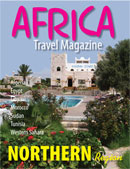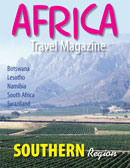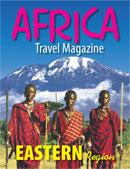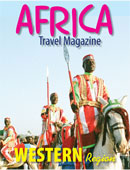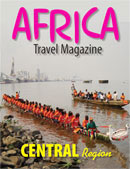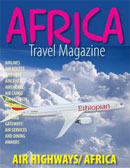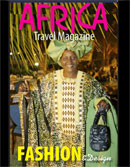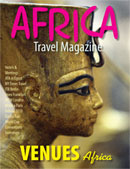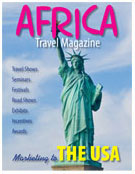

Shop
Clothing, Textiles and Wearable
Art by
Muguette Goufrani Mali
Headdress Guinea
hair styles Cameroon
turban celebrate
Africa Guinea
festive wear World's
Largest Fetish Market: While in Togo, we
spent a full day at Akodessewas, the
world's largest fetish market, with its
array of sorcerers' potions; roots, bark,
monkey skulls, wart hog teeth, porcupine
skins, leopard hides, antelope horns,
bones of crocodiles, horses, pigs and
monkeys, plus various parts of human
anatomy. Such concoctions are used to cure
everything from diarrhea and the flu, to
cuts, impotence and rheumatism. I tried on
a gris gris (necklace), which is said to
work its magic when blessed by a fetish
priest. Part doctor, part psychic, the
priest relies on herbal medicines, charms
and a healthy dose of positive thinking.
They believe that the spirits are
everywhere -- in the air, the trees, the
water - even buildings. A priest calls on
his favorite god to predict future events,
and keep evil forces at bay. He sits on a
stool in his colorful robe, holding a
regal staff, receiving gifts of gin, which
he sips as a troupe performs ritual
chanting and dancing. A sacrificial
offering is made as a show of loyalty and
respect to the spirits, and to gain
special favors, such as the birth of
twins. Continued


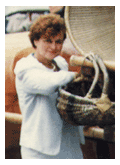 Quick
now! How well does Africa Travel
Magazine's web site score in the exciting,
ever-changing world of fashion? The
answers are astounding! In a recent search
using the words Africa Fashion, our web
site ranked#1 out of 2,800,000 entries on
Yahoo, and was #1 on Google from 1,650,000
entries. Since Africa Travel Magazine's
debut in 1995, African fashion has been a
feature item on the editorial menu. It
started at an event in Benin, West Africa,
with our editor's keen observation and
rapt attention to the wide range of
colorful wear of our African and African
American delegates were wearing.
Quick
now! How well does Africa Travel
Magazine's web site score in the exciting,
ever-changing world of fashion? The
answers are astounding! In a recent search
using the words Africa Fashion, our web
site ranked#1 out of 2,800,000 entries on
Yahoo, and was #1 on Google from 1,650,000
entries. Since Africa Travel Magazine's
debut in 1995, African fashion has been a
feature item on the editorial menu. It
started at an event in Benin, West Africa,
with our editor's keen observation and
rapt attention to the wide range of
colorful wear of our African and African
American delegates were wearing.
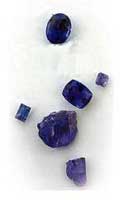 The
wind- up gala evenings, held twice each
year, were a kaleidoscope of color. What a
splash! In this issue , we feature
something very dear to my heart, so let's
start at the top ... "le Chapeau
Africain." Since hats, bonnets, turbans,
wraps and unique coiffure are such a key
part of Africa's fashion scene, I am
pleased to present my first articles on
this delightful, universal topic featuring
the designs of Alphadi, Esterella,
Chrystalix, Abdela , Oumou Sy, Gigi and
others we have profiled on our ATA web
site. An expanded version will follow in
Africa Travel Magazine's 30th Jubilee
editions, lighting the spark for a Jubilee
Fashion Spectacular at Travel Shows in
Africa, the USA and Canada. Visit the
Africa Travel Magazine web site for
updates to our editorial calendar, and
news from the ATA chapter level to
international travel expos attended by
thousands of tourism professionals,
vacationers and travelers, who need to
meet and get to know Africans in
Tourism.
The
wind- up gala evenings, held twice each
year, were a kaleidoscope of color. What a
splash! In this issue , we feature
something very dear to my heart, so let's
start at the top ... "le Chapeau
Africain." Since hats, bonnets, turbans,
wraps and unique coiffure are such a key
part of Africa's fashion scene, I am
pleased to present my first articles on
this delightful, universal topic featuring
the designs of Alphadi, Esterella,
Chrystalix, Abdela , Oumou Sy, Gigi and
others we have profiled on our ATA web
site. An expanded version will follow in
Africa Travel Magazine's 30th Jubilee
editions, lighting the spark for a Jubilee
Fashion Spectacular at Travel Shows in
Africa, the USA and Canada. Visit the
Africa Travel Magazine web site for
updates to our editorial calendar, and
news from the ATA chapter level to
international travel expos attended by
thousands of tourism professionals,
vacationers and travelers, who need to
meet and get to know Africans in
Tourism.





 Wearable
art, unique headwear and clothing styles
that reflect every corner of this vast
continent of Africa, are available in
thousands of markets, souks and boutiques
across the country, including the giant
"Merkato"
in Addis Ababa, Ethiopia. Contemporary
fashions are showcased at events, such as
ATA Fashion Parades which takes place at
most
Congresses
Togo,
West Africa, is truly a shoppers'
paradise. Lome's central market, where we
bargained for many of my favorite
keepsakes and wardrobe items, rates as one
of the five best shopping sites in Africa.
At Maison Royale, my friends and I were
dazzled by an elegant gold Mercedes- Benz,
parked at the entrance, gleaming in the
mid-day sun. A symbol of wealth and
success in North America, these upscale
autos are commonplace in Lome, many being
owned by "Nana Benz" - women traders, so
named because they all appear to be
Mercedes Benz
owners.
Most taxicabs are owned by this
enterprising group.
Wearable
art, unique headwear and clothing styles
that reflect every corner of this vast
continent of Africa, are available in
thousands of markets, souks and boutiques
across the country, including the giant
"Merkato"
in Addis Ababa, Ethiopia. Contemporary
fashions are showcased at events, such as
ATA Fashion Parades which takes place at
most
Congresses
Togo,
West Africa, is truly a shoppers'
paradise. Lome's central market, where we
bargained for many of my favorite
keepsakes and wardrobe items, rates as one
of the five best shopping sites in Africa.
At Maison Royale, my friends and I were
dazzled by an elegant gold Mercedes- Benz,
parked at the entrance, gleaming in the
mid-day sun. A symbol of wealth and
success in North America, these upscale
autos are commonplace in Lome, many being
owned by "Nana Benz" - women traders, so
named because they all appear to be
Mercedes Benz
owners.
Most taxicabs are owned by this
enterprising group.
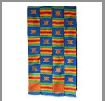 What
is Kente Cloth?
Basically,
it's an Asante ceremonial cloth that is
hand-woven on a horizontal treadle loom.
The looms we saw at the village near
Kumasi were out in the open air, although
in a grassy, shaded area. Cloth strips,
approximately 4 inches wide are sewn
together into larger bolts. Of many
colors, sizes and designs, Kente cloth
items, long scarfs in particular, are worn
throughout Ghana and its neighboring
countries, during most social and
religious occasions. The name comes from
the word 'kenten', which means basket. We
saw virtually every possible color and
pattern of kente cloth during the day-long
Durbar ceremony at Koforidua village near
Accra. According to Ghanaians, kente
depicts the area's history and philosophy,
its ethics, oral literature, moral values,
social and religious
concepts.
What
is Kente Cloth?
Basically,
it's an Asante ceremonial cloth that is
hand-woven on a horizontal treadle loom.
The looms we saw at the village near
Kumasi were out in the open air, although
in a grassy, shaded area. Cloth strips,
approximately 4 inches wide are sewn
together into larger bolts. Of many
colors, sizes and designs, Kente cloth
items, long scarfs in particular, are worn
throughout Ghana and its neighboring
countries, during most social and
religious occasions. The name comes from
the word 'kenten', which means basket. We
saw virtually every possible color and
pattern of kente cloth during the day-long
Durbar ceremony at Koforidua village near
Accra. According to Ghanaians, kente
depicts the area's history and philosophy,
its ethics, oral literature, moral values,
social and religious
concepts.

![]()
![]()

![]()
